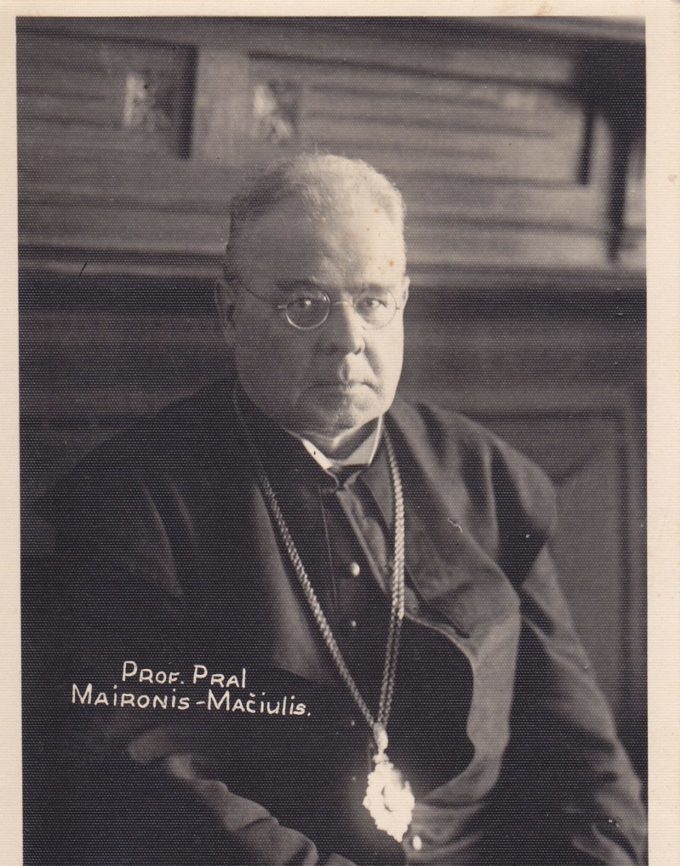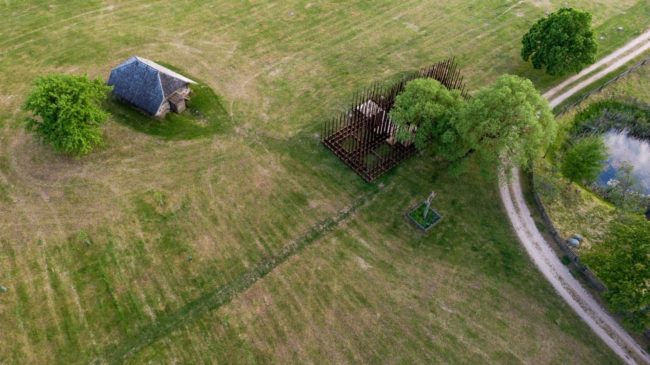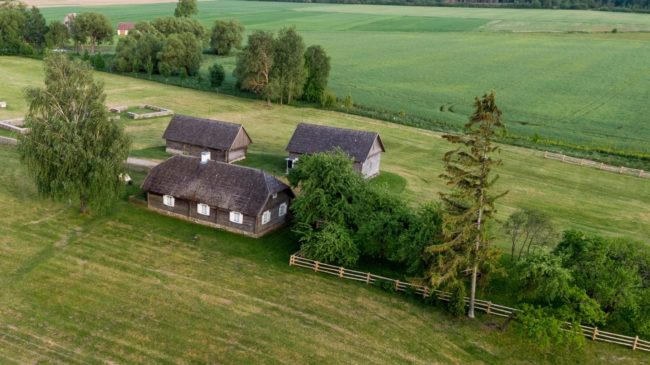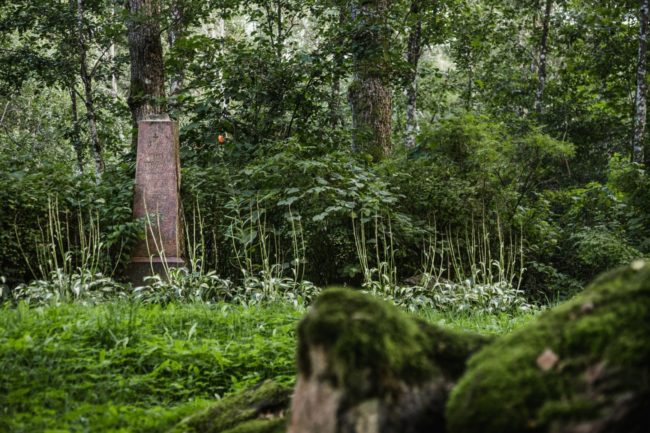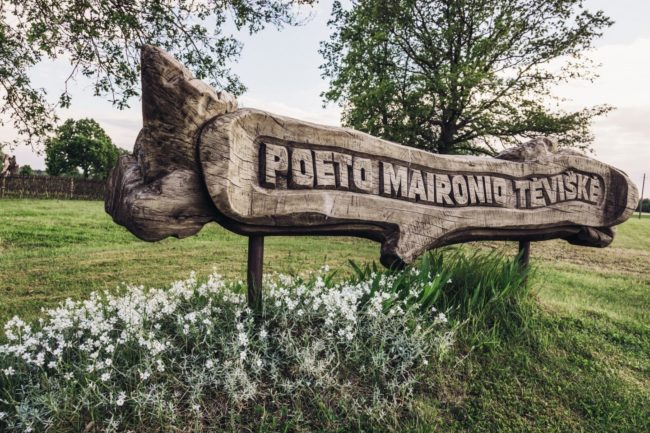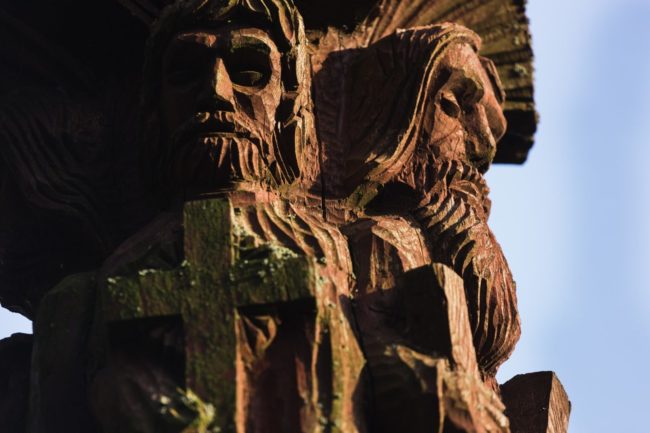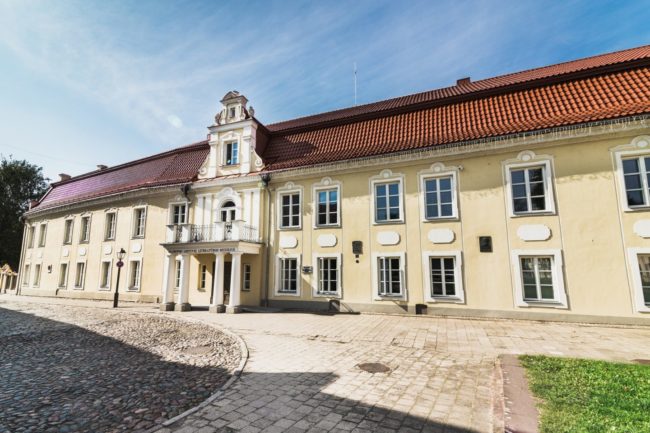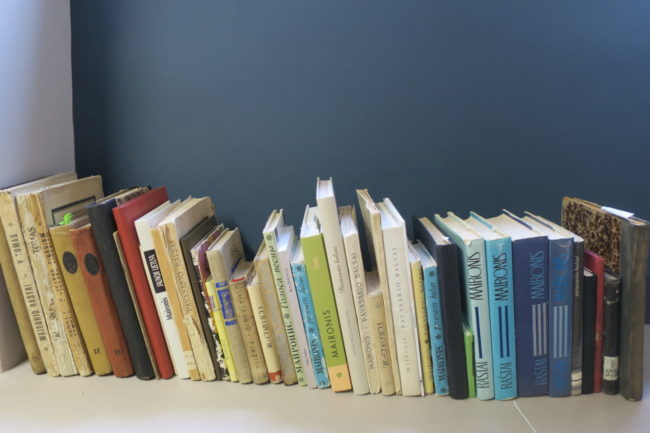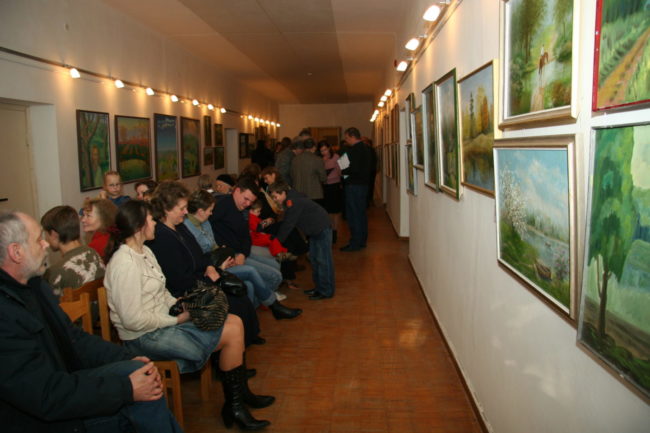Maironis was a pioneer of new Lithuanian lyrical poetry, and was extolled as a prophet of the national revival. His poetry influenced other writers, and in Lithuanian literature, his literary style is named as a distinct Maironis literary school. Jonas Mačiulis (Maciulevičius in documents), was born in 1862, in Pasandravis manor house, and grew up…
Maironis homeland is Pasandravis manor house. The poet spent several years of his childhood in that location. His first impression of nature and world cognition formed there. In about 1860, the Astrauskai, the real inheritors and owners of Pasandravis manor, assigned the manor house to a farmer Aleksandras Mačiulis, the poet’s father, to repay their…
Bernotai: the homestead of Jonas Mačiulis-Maironis‘ parents where the poet spent several years of his childhood, and often paid long visits to in manhood. 45 hectares of farmland and 19 hectares of woodland belonged to the farmstead. The grange covered almost a rectangular, canted in the south-eastern corner land lot. A byway wound into it…
The structure of the homestead was finally shaped after the changes in the third decade of the XX century. During the years of the 1st World War, when the old Mačiuliai homestead was destroyed by fire, Maironis sister’s Kotryna’s family (the Lipčiai) conveyed an old house from Didžkaimis and built a place to live. They…
The most peaceful and rarely visited place here is a timeworn small graveyard or maybe a former manor graveyard, mysterious, cloaked by old trees, framed by the riverbed of the Sandrava rivulet, and magically surrounded by the mossy stone ring. There are some burial places still extant with the surnames of the Astrauskai, former Pasandravis…
In the path section between two rivulets, the Luknė and the Sandrava, 125 oak trees were planted then, and this path is known as Maironis path. Currently, more than 150 oak trees are green there, and a swing was set for the young and the old to relax on this pleasant spot. Following the birch…
Pasandravis homestead and Bernotai homestead and their surroundings are sculptured by unique crosses and pillar-type chapels designed by Lithuanian folkmen and presented to Maironis birthplace. At the end of 1990 the idea of erecting crosses and pillar-type chapels with images of patron saints in Pasandravis cultural and historical reserve emerged. Birutė Kulpinskaitė, the director of…
As soon as visitors open the door of poet Maironis apartment, a Lithuanian plucked string musical instrument called Kanklės starts playing, and one can hear the melody of the song of Juozas Naujalis “Dear Lithuania” (Lithuanian: “Lietuva brangi”) the lyrics of which was written by Maironis. Exquisite antique furniture, red velvet couches, bookcases full of…
The most creative period for Jonas Mačiulis Maironis was the time spent studying at St. Petersburg Spiritual Academy (1888-1892) and lecturing at Kaunas Theology Seminary. Some J. Mačiulis’ poems were composed during his last months of the seminary, and he started his poem ‘Tarp skausmų į garbę’ (Through Grief to Glory) then. In 1994, the…
A national folk art exhibition and contest entitled ‘Tu, jo numylėta Tėvynė!’(You Are His Beloved Homeland), serving as a memento of Maironis, has become a great tradition. Every five years, invited by Raseiniai Region History Museum, Lithuanian folk artists gather together to exhibit their artwork dedicated to the memory of Maironis. In 1997, to commemorate…

